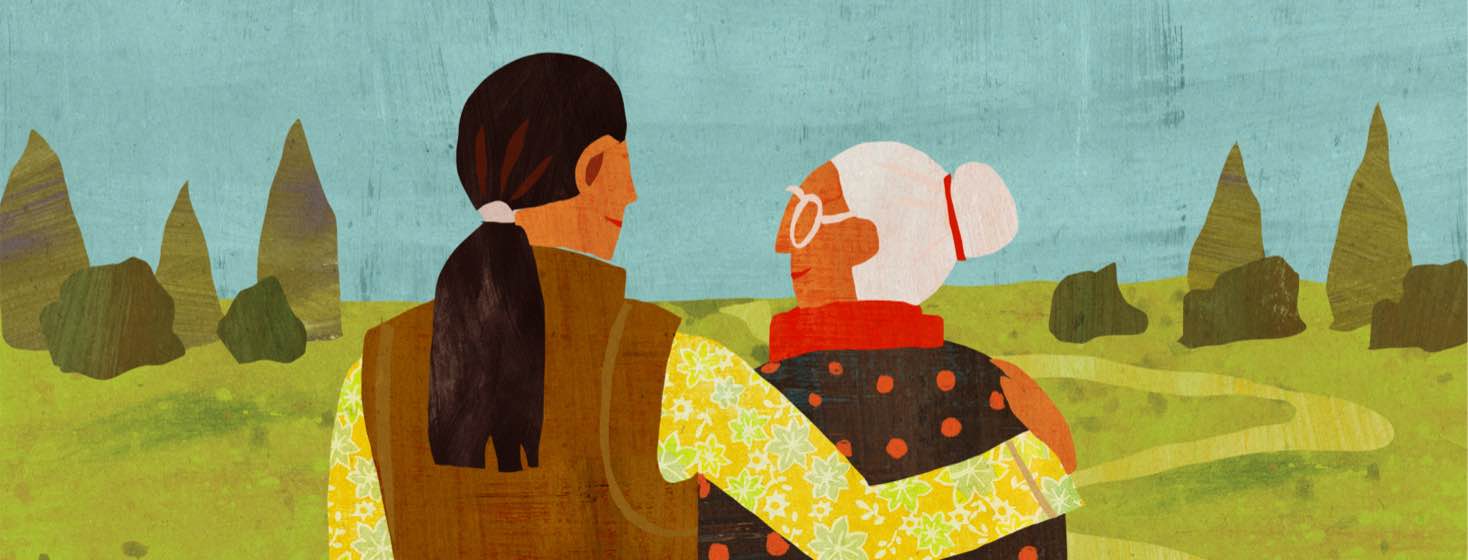The Importance of Emotional Support for Patient and Caregiver
Just how important a caregiver can be to a person with cancer is becoming clearer. Many studies have shown that a person’s own emotions can affect their choices and thoughts about cancer treatments and support. A new study reveals that emotionally healthy caregivers can help people with bladder cancer better handle and recover from radical cystectomy.1,2
In a radical cystectomy, a doctor takes out the whole bladder. They then create a new bladder (neobladder) or an opening (urostomy) that leads to an external pouch for holding urine. This surgery can affect a person’s ability to function and enjoy life. This is sometimes called psycho-emotional well-being.
What was the focus of the study?
A group of doctors at the European Institute of Oncology in Italy conducted a study between 2016 and 2020. The study followed 382 people with bladder cancer and their caregivers over 6 months. Roughly 16 percent were women, while more than 80 percent were men. Spouses/partners accounted for more than 60 percent of the people caring for those with cancer.2
The people with cancer and their caregivers were informed of the surgery upfront. They were given mental health counseling:2
- 1 month before surgery (pre-surgery)
- 2 weeks following surgery (post-surgery)
- 6 months after surgery (follow-up)
At these times, they filled out written surveys about their emotions, health, and state of life. Several groups of questions were included in the surveys. An emotion thermometer gauged anger, anxiety, depression, stress.2
Another set of questions measured functioning, overall health and well-being, quality of life, and symptoms of those with cancer.2
What did the study find?
The answers to the surveys pointed toward important findings. First, there is a link between a caregiver’s emotional and mental health and the psycho-social well-being and outcomes of the person with cancer. Second, the type of surgery, neobladder or urostomy, did not change the results.2
The study found that caregivers felt a drop in anger, anxiety, the need for help, and stress after surgery. While anger and anxiety also dropped for the people with cancer right after surgery, stress and the need for help rose.2
Whenever caregivers were more troubled in their emotions, the people who underwent surgery felt their quality of life and overall health and well-being were lower. The people with bladder cancer were more likely to handle their diagnosis, surgery, and recovery better when their caregivers had greater emotional and mental wellness.2
By the end of the study, the people with cancer felt their emotions and thoughts had improved. They and their caregivers reported less emotional distress at follow-up visits than they did before surgery.2
The study also confirmed the results of studies conducted by other doctors at earlier times. These studies found that people needed more help right after surgery. But in time, they regained a level of health they were satisfied with and felt happy again.2
The importance of emotional support
This study highlights the value of emotional support for people with bladder cancer and their caregivers, given the link between their well-being. Caregivers can have a big effect on what people with bladder cancer go through from the time of diagnosis to recovery from treatment. Easing the emotional distress in both can lead to better care and outcomes in both the short and long run.2
Getting bladder cancer and going through treatments are tough not only on a person’s body but also on their emotions and mind. A caregiver can either make things easier or tougher. A lot depends on the emotional and mental health of the caregiver.

Join the conversation